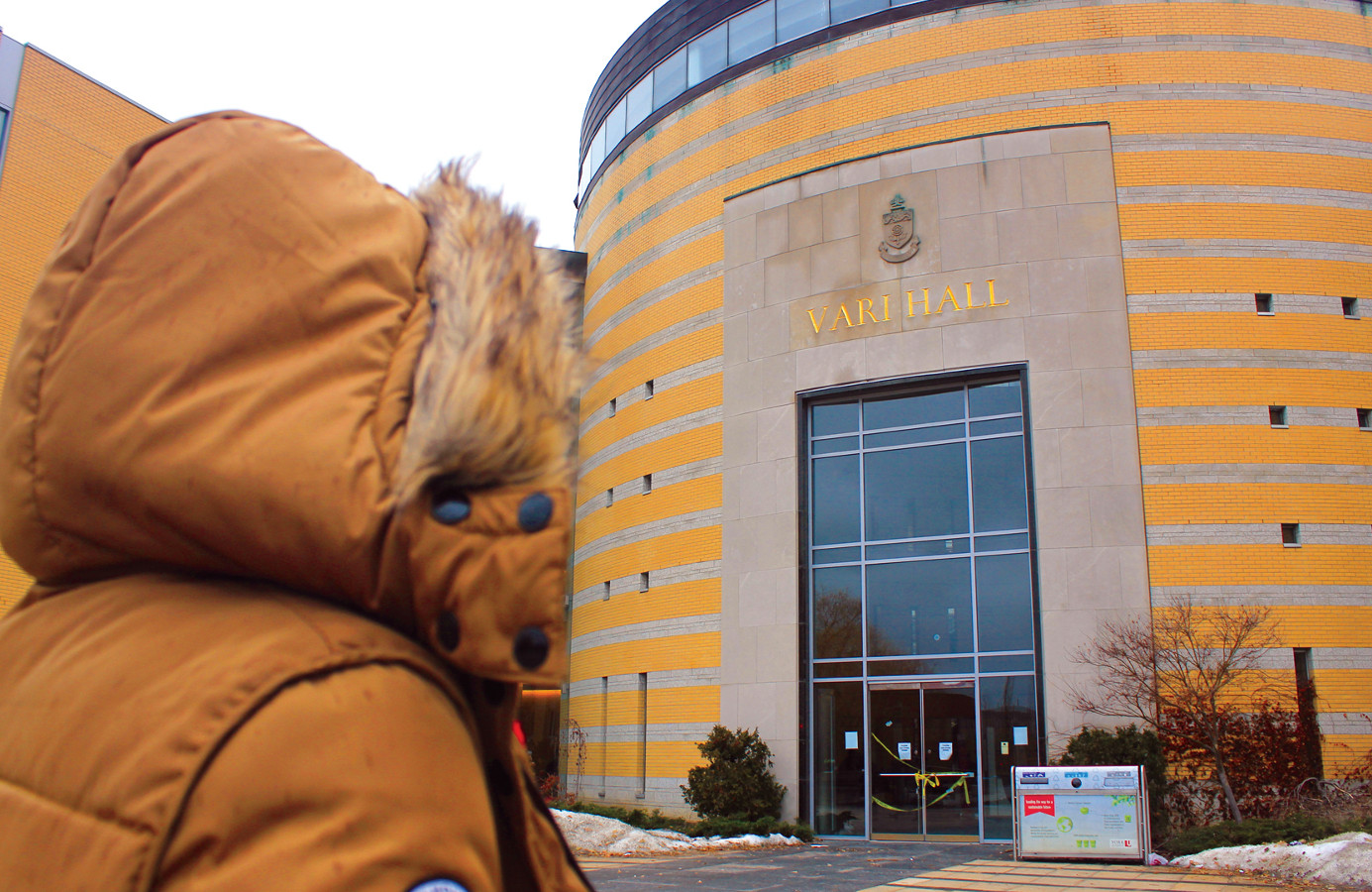Dennis Bayazitov | Assistant News Editor
Featured image: “The ‘Dreamers’ generally refer to individuals who have precarious immigration status.” – York President Rhonda Lenton | Emilie Miranda
York is exploring options for further funding its pilot study project designed to offer Canadian “Dreamers” a chance for post-secondary education. Unofficially titled “Access to Post-Secondary Education for Students with Precarious Immigration Status,” it is the first of its kind in Canada, making York the first Canadian university to implement a framework for addressing the issue.
The term “Dreamers” first originated in the United States, from the Development, Relief, and Education for Alien Minors Act, referring to Deferred Action for Childhood Arrivals youth.
The definition is now being used in Canada, referring to any individuals who have precarious immigration status.
“York really is a leader in trying to find ways to ensure we’re not leaving any talented individuals behind,” says York President Rhonda Lenton.
“We’re trying to be innovators in making it possible to deliver higher education for individuals who might not otherwise be able to easily access it.”
The project first began in 2015 when the City of Toronto invited proposals to its Pan Am/ParaPan Am Games Community Legacy Grant.
“The goal of this one-time funding program was to support Pan Am Games-related community projects that provide economic and/or social infrastructure benefits to Toronto’s Latin American, South American, and Caribbean communities,” says Chris Brillinger, executive director of Social Development, Finance, and Administration with the City of Toronto.
Alice Pitt, vice provost of Academics, began collaborating with Executive Director Yvette Munro with the Ontario Council on Articulation and Transfer, who served as co-chair of the Council of Educators of Toronto (CET) at the time.
“CET is a unique network of all the universities, colleges, and school boards of the City, with a shared vision of a more accessible post-secondary education system for all, particularly those marginalized or at risk in our society,” says CET Director Eric Mezin. CET “fosters information sharing, coordination, and cooperation among its member institutions and the access programs they offer.” It does not provide direct services to learners.
“I spoke with the granting officer about the possibility of a project such as this being eligible,” Munro says. “Admittedly, it was not what they had in mind but, after a few conversations, became agreeable, and then connected with Faithful Companions of Jesus (FCJ) Refugee Centre as a potential project partner and lead applicant on the grant, as universities could not be the lead applicant.”
FCJ and York co-developed a proposal called “Access to University Studies for Students with Precarious Immigration Status,” which was awarded $235,685 over two years, to support the pilot project. Funding ends this year.
Currently admitting approximately 30 weekly newcomers, “FCJ has been taking the lead on community outreach and identifying potential students who would fit the program,” says Tanya Aberman, research and project coordinator with FCJ.
“The pilot program at York is opening pathways to increase access for students with precarious immigration status.”
The program features Critical Approaches to Migration and Uprootedness, a non-credit bridging course for applicants offered by the Department of Sociology, delivered for cohorts admitted to York in winter, summer, and fall last year.
“Getting into the non-credit course is intended to focus on the development of critical thinking, university writing, and reading skills,” says Lenton. “If applicants successfully complete the course, they are eligible for admission to York.”
A special program set in place allows participants to pay the domestic rate for their degree. “Even that is often challenging for these families when they’re not even allowed to work,” adds Lenton.
York currently has 10 students admitted in university degree studies in the faculty of Liberal Arts and Professional Studies, Faculty of Science, and Arts, Media, Performance, and Design, after successfully completing the bridging course.
Funding was appropriated for the project’s three parts: developing and delivering the bridging course, exploring potentially necessary institutional changes in granting degree admissions, and mobilizing knowledge that could affect policy or practices elsewhere.
The knowledge-mobilization portion, Lenton says, primarily effects policy or practice change to collect data from this pilot that could inform from longer-term government policies. York is now sharing this information with other Toronto post-secondary institutions, seeing if Ryerson and U of T are interested in implementing similar programs.
“I think we are going to pursue all possible opportunities,” Lenton adds, regarding how York intends to sustain this project. “Maybe talk to some of our alumni, talk again to the City of Toronto, look for relevant foundations to provide funding for these kinds of initiatives—we’re quite keen to try to keep the program going.”


